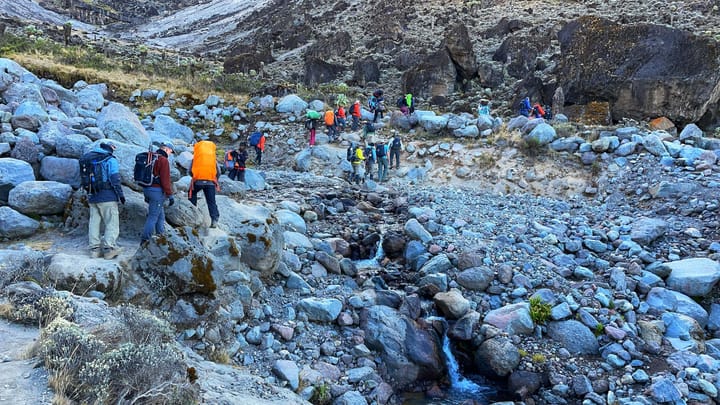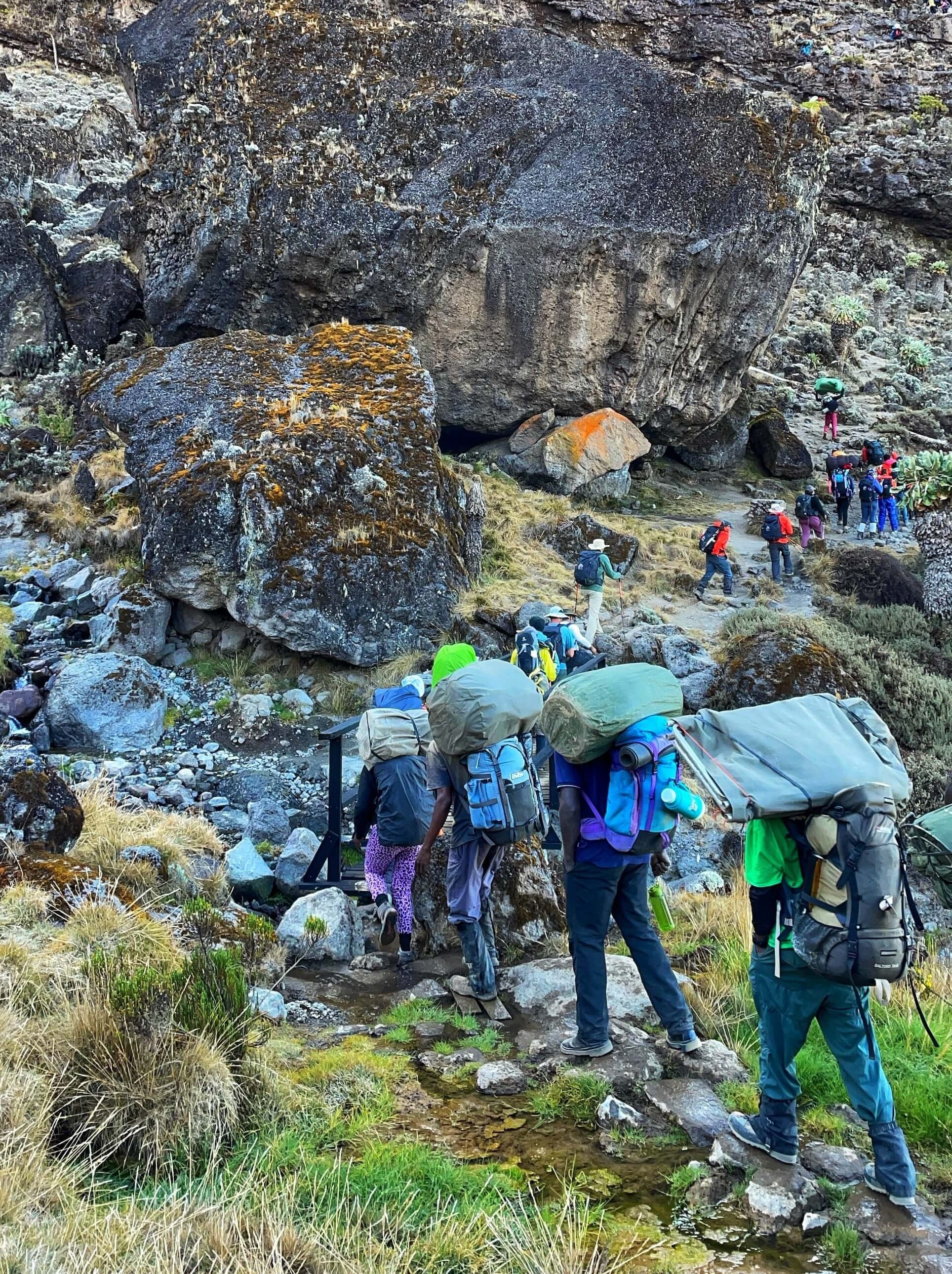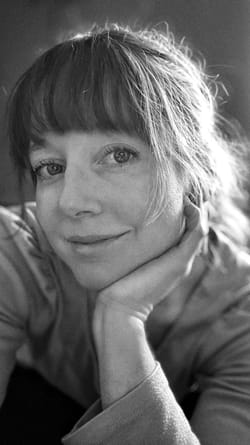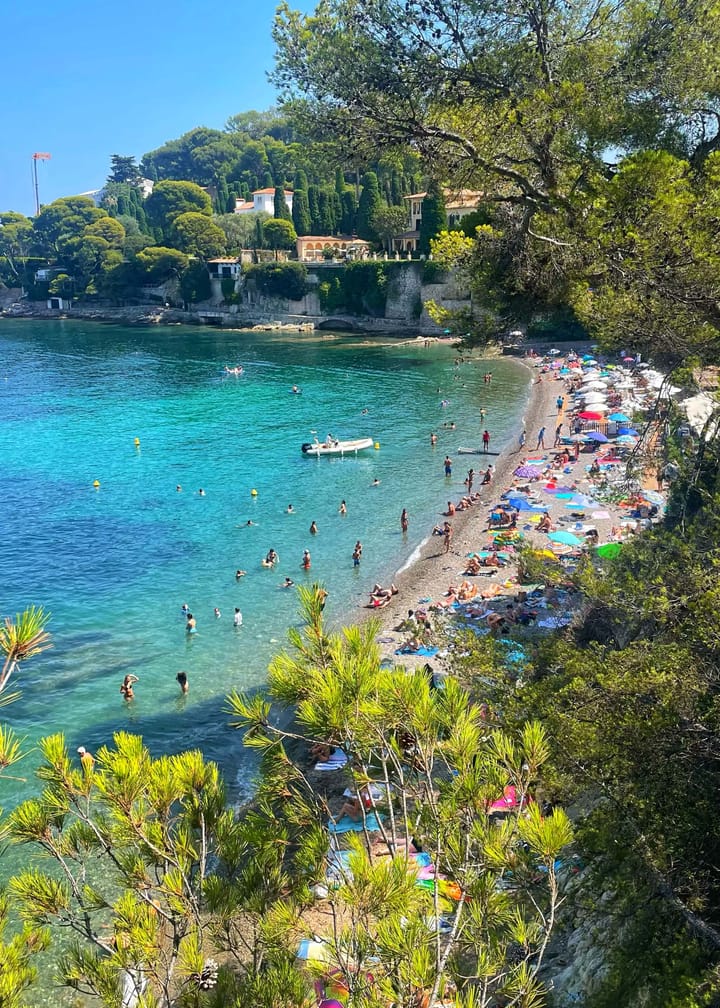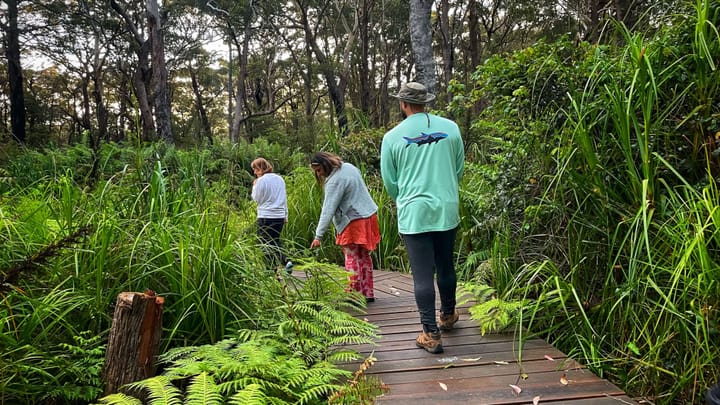Let me set the scene. Imagine a quiet day on the mountain, only 400 white people, and 2000 porters, chefs and guides to serve them. There’s a system for the traffic; Mzungus (Swahili for "white people who walk in circles") keep to the left, porters pass on the right. No matter your athletic ability, tour companies promise you can hike Kilimanjaro. And so no matter your athletic ability, there is one pace: pole pole (Swahili for "slow"). There are so many people on any given route that everyone basically hikes in one single file queue. Sometimes you pass a particularly annoyingly slow group, only to have them pass you again when you inevitably stop for water or to pee. A pointless game of leapfrog, while you all make your way to the same place.
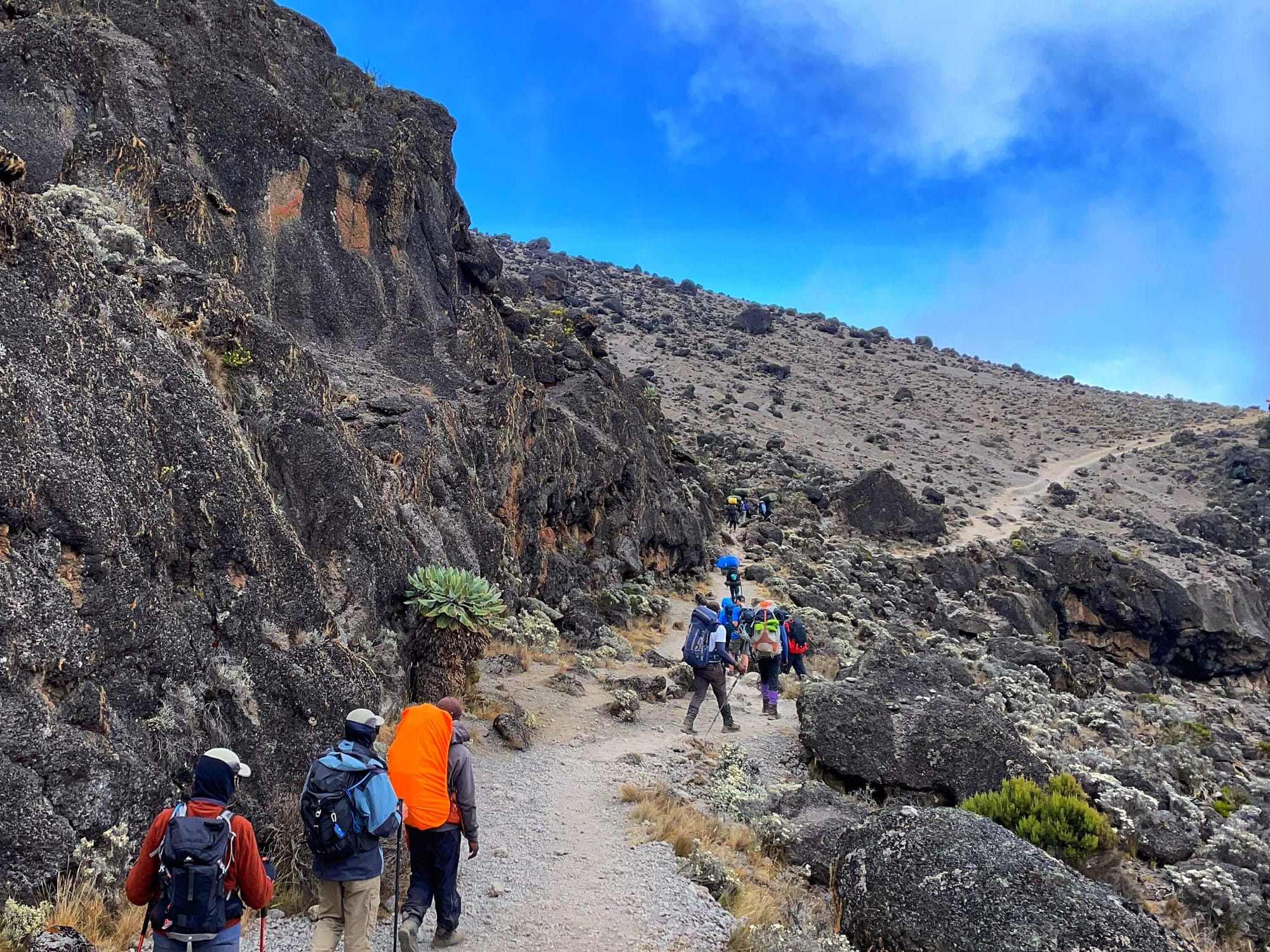
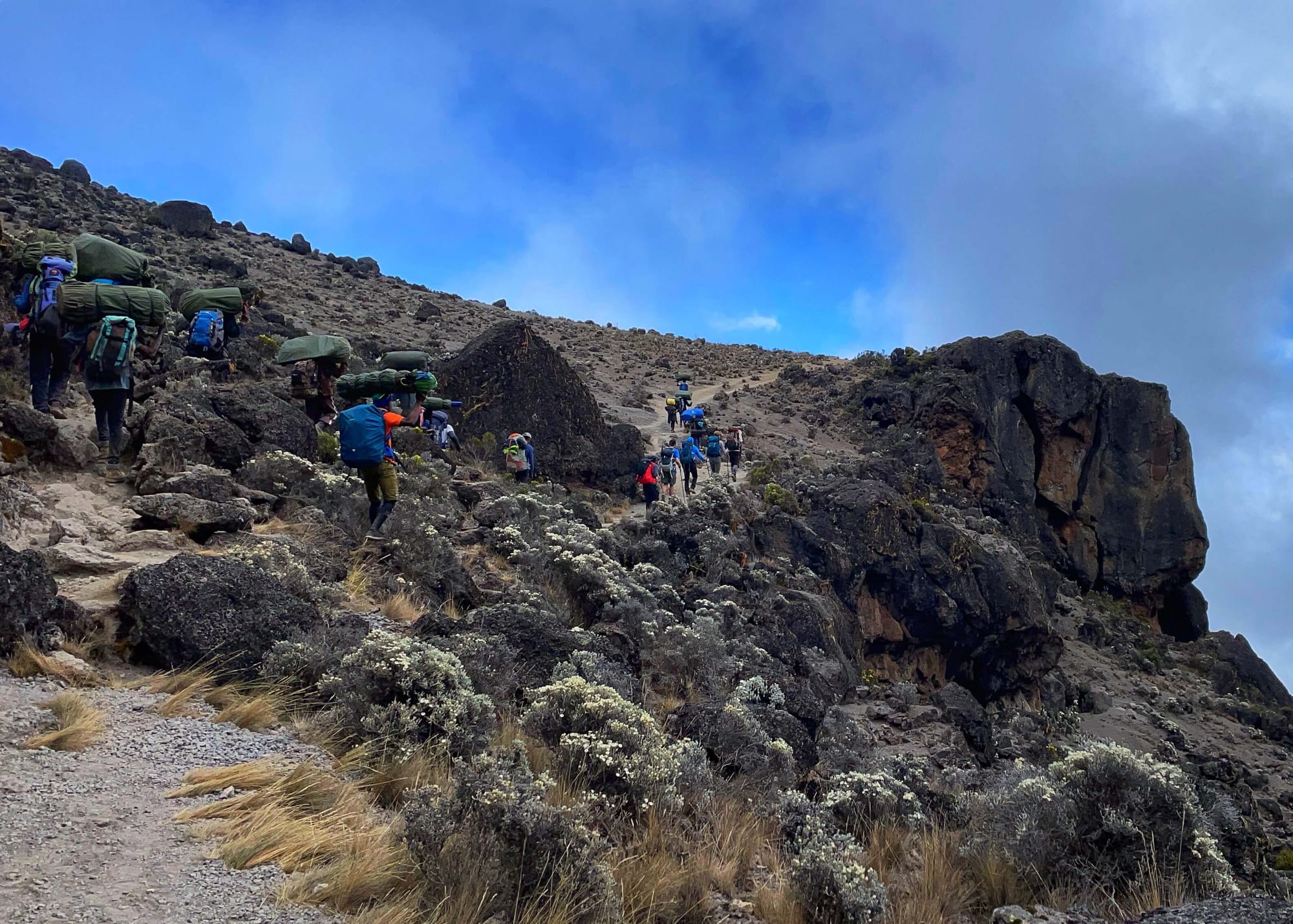
Porters and hikers on the winding path from Baranco Camp to Karanga Camp.
The only real difference between tour companies on the mountain is how much you pay, how much they pay your porters, and the quality of food and sleeping quarters. But all 2400+ people sleep at the same camps, which each night become a small village. I’m sure in one tent there is a speakeasy, another a high stakes poker table, and another a rave. Our group was only three hikers including myself, but we had a pretty competitive Uno game going, so I can’t be that far off. Probably there’s an underground market for drugs, Diamox and Malarone exchanging hands for a few dollars a pill. At some point someone will start going around collecting taxes for the presently nonexistent but desperately needed bathroom attendant to clean the aftereffects of maladaptive stomachs and bowels.
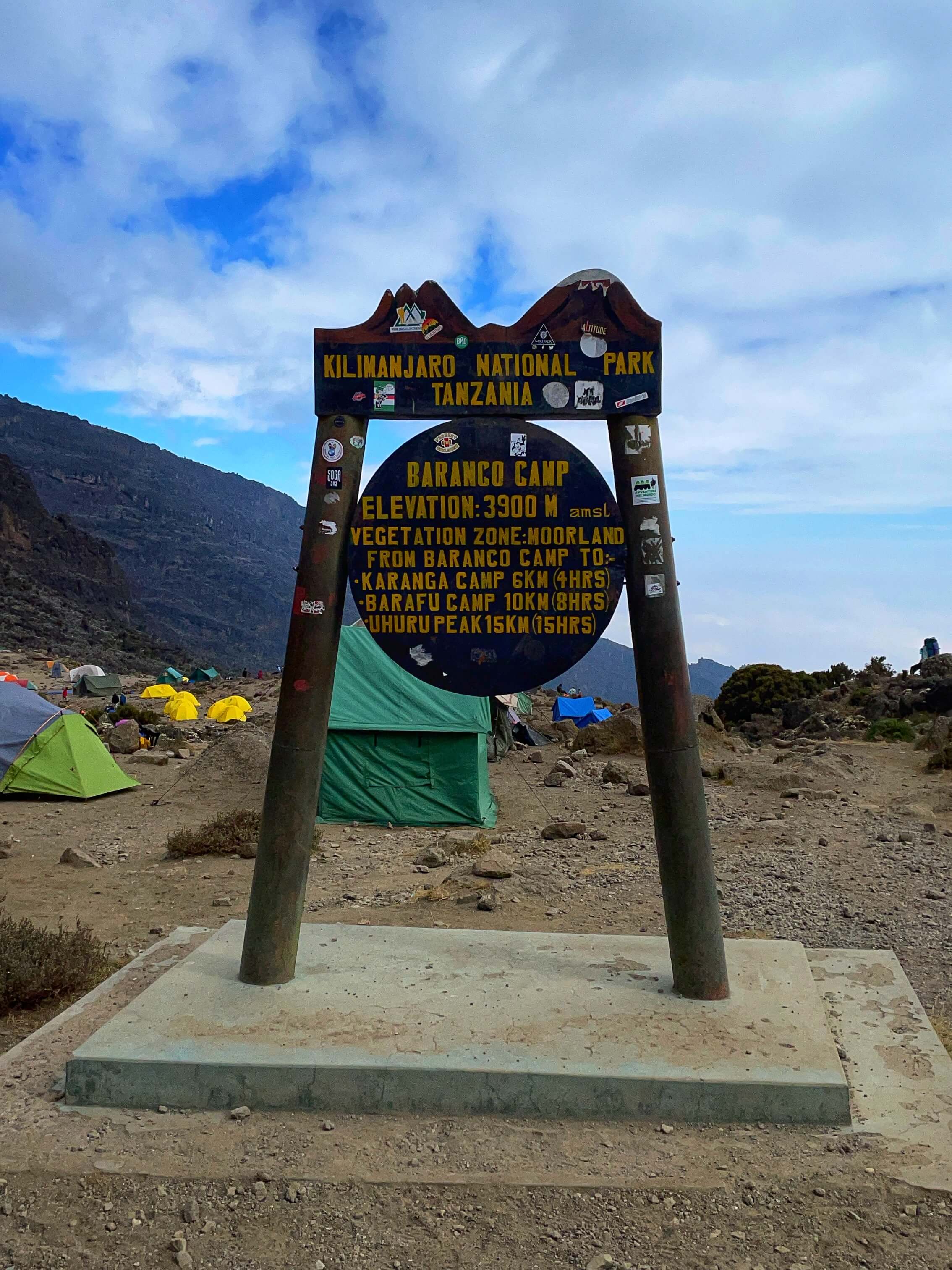
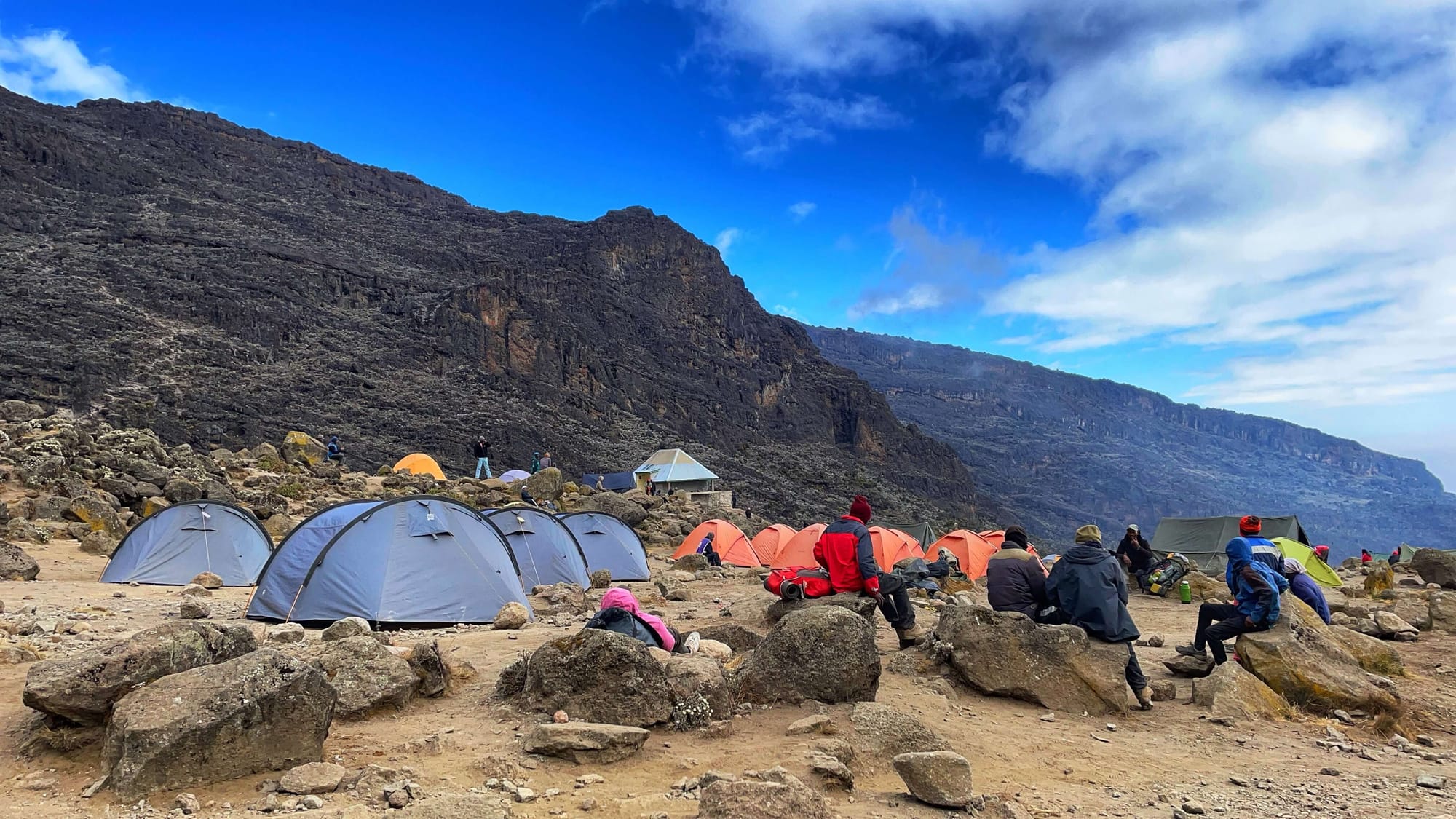
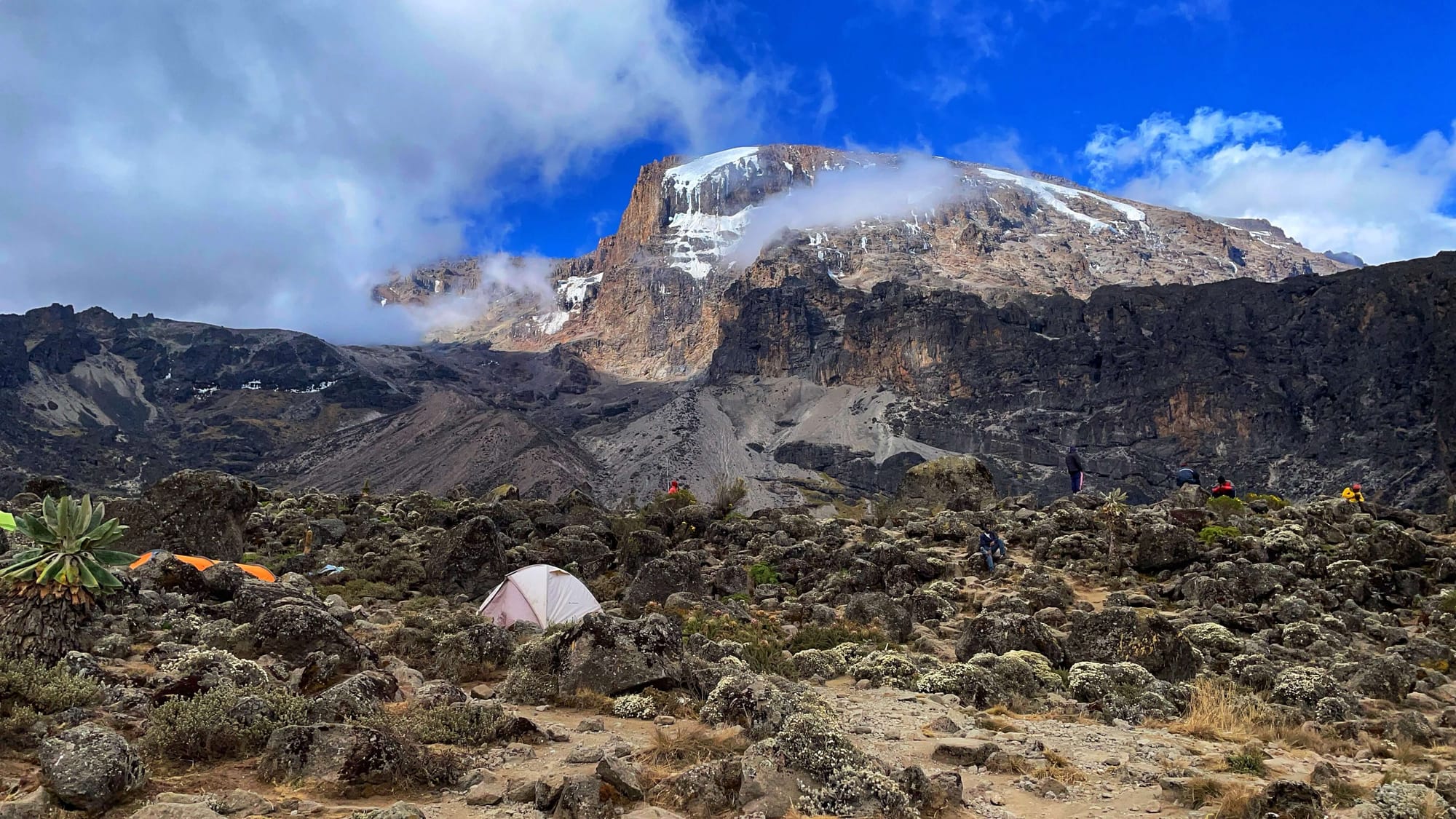
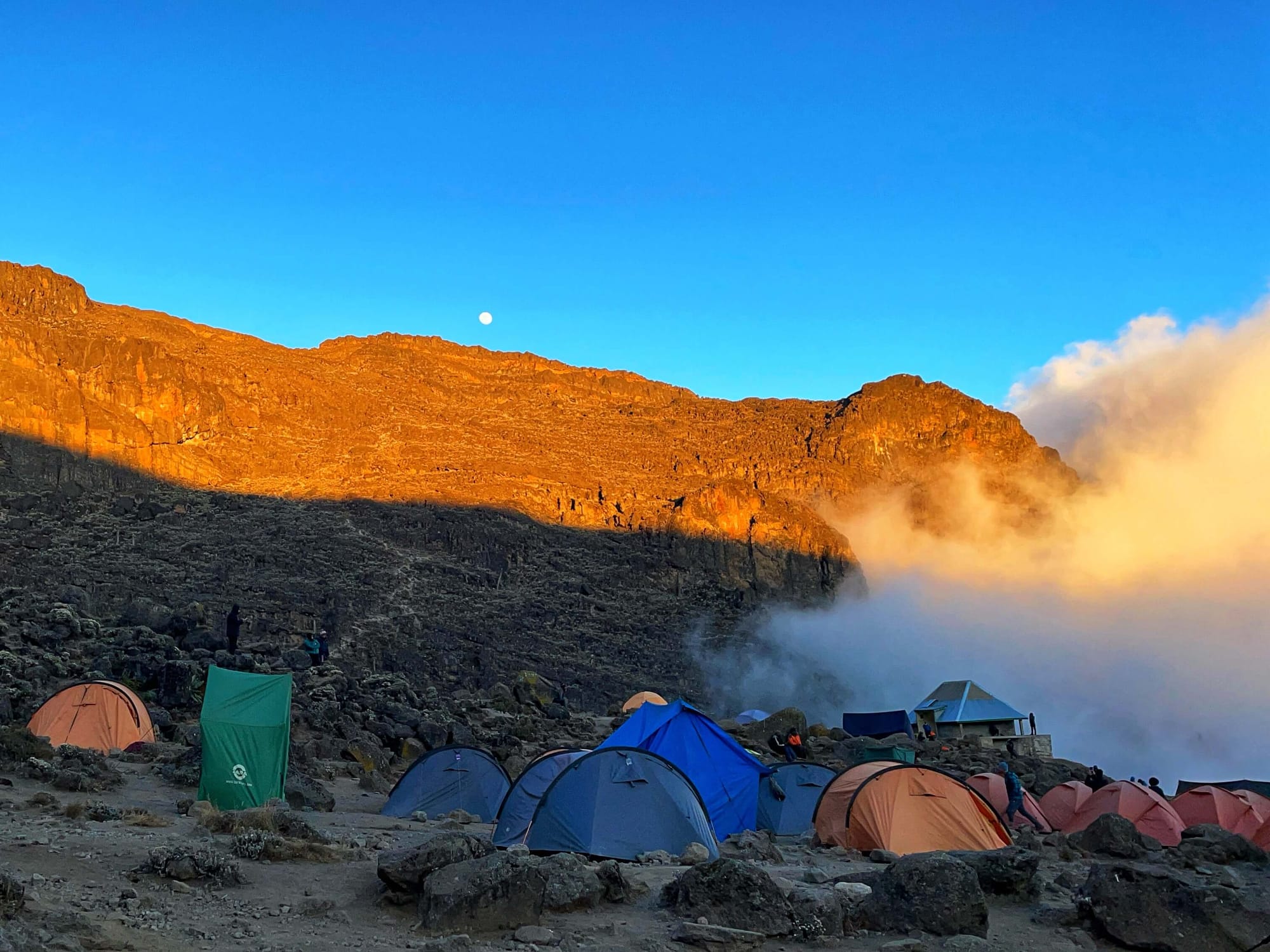
Scenes from Baranco Camp. This looks less crowded than it is. This is not even one-tenth of the tents that filled the surrounding area. (Click any image to view larger.)
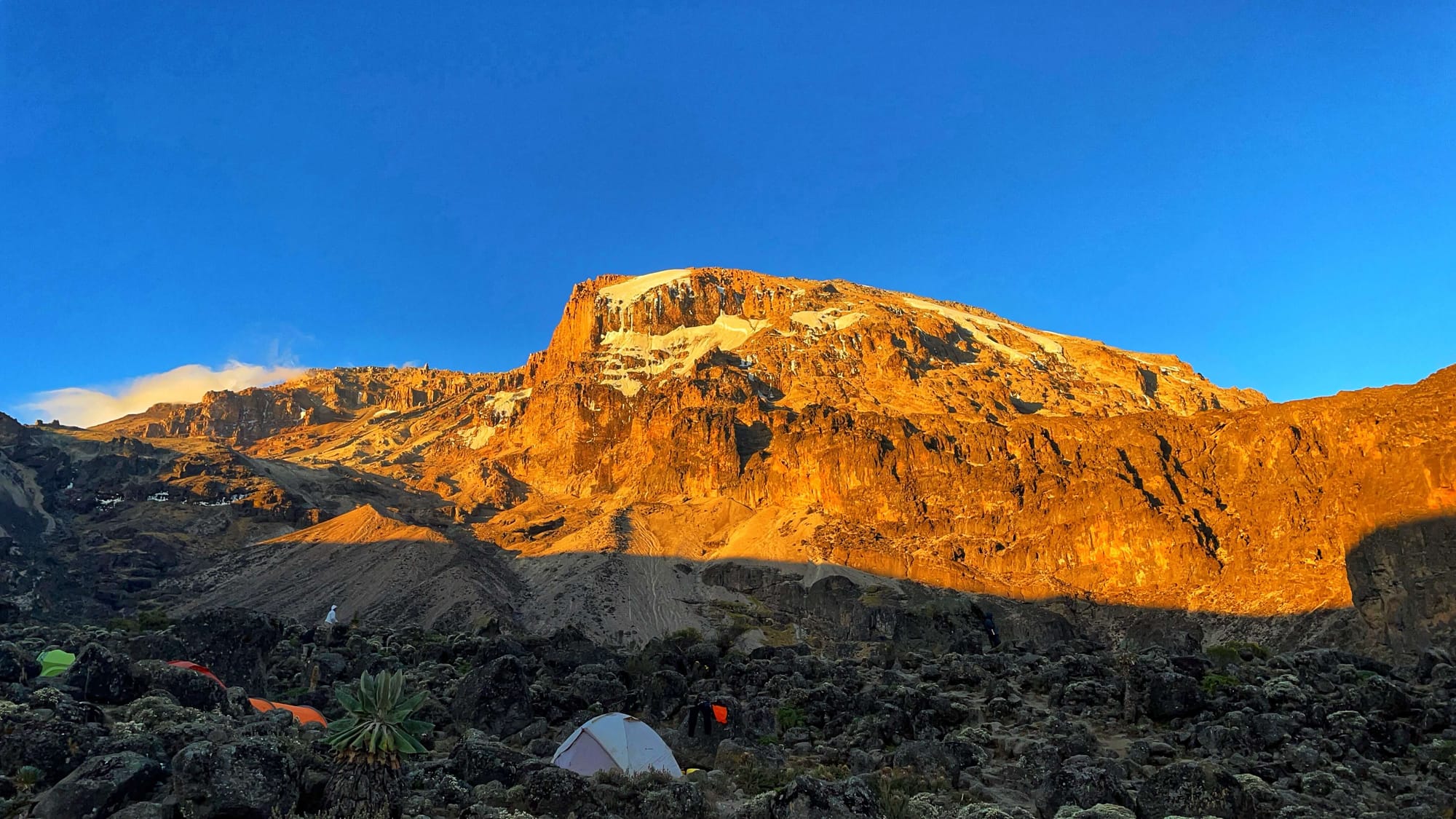
Each day, everyone files back out of camp onto the same path. And then, inevitably, you hear voices – always American – booming from behind you.
“Did you hear they took one of the porters down because he was playing music?”
“Was it country?”
“Heart emoji!”
“No one said day two was this hard!”
“How much farther is it in miles?”
“Let’s sing to pass the time.”
“I love Drake.”
“Channel your inner John Denver! 'Rocky Mountain High.'”
“No, it’s gotta be a call back song.”
“Well we can’t Google it.”
“Manana lalalanana hakuna matata! There’s gotta be an American version of this song.”
“I’m surprised we haven’t seen much wildlife.”
“Did you see Bohemian Rhapsody? So well done.”
“It sounds like we all have long Netflix lists for when we go home!”
“I’m reading Outliers right now and honestly it’s kind of depressing.”
“We’re hiking for the cure for cancer.”
“It was really nice because I felt like there was no judgment in Canada when I euthanized my mom.”
“What kind of law do you practice?”
“It was obviously a massive union violation. You are only supposed to reserve 47 percent of the schedule. I looked at the annual data and it was 48.1 percent reserved.”
“I didn’t know there was a theme for our outfits.”
“You look like you’re going to Burning Man.”
“If you’re smoking something I definitely want to be a part of it.”
“I’m ready for a game. 20 questions.”
“Ok I’m thinking of a place.”
“Is it in the U.S.?”
“Yes.”
“Is it the name of a monument?”
“No.”
“Thank god we have 10 hours to figure this out.”
(Spoiler alert: it was Disneyland, and yes, these are actual overheard quotes I jotted down in my phone while hiking.)
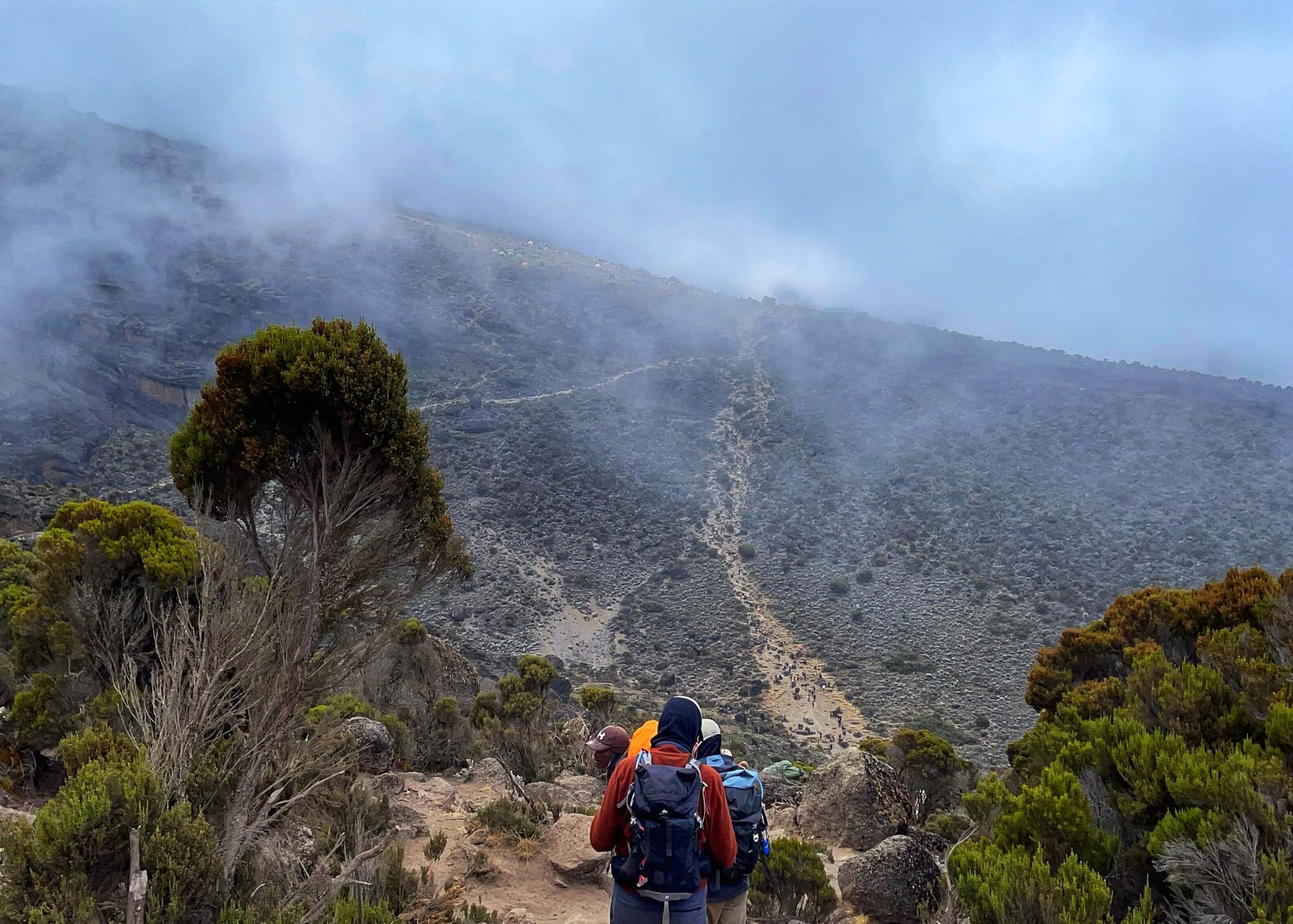
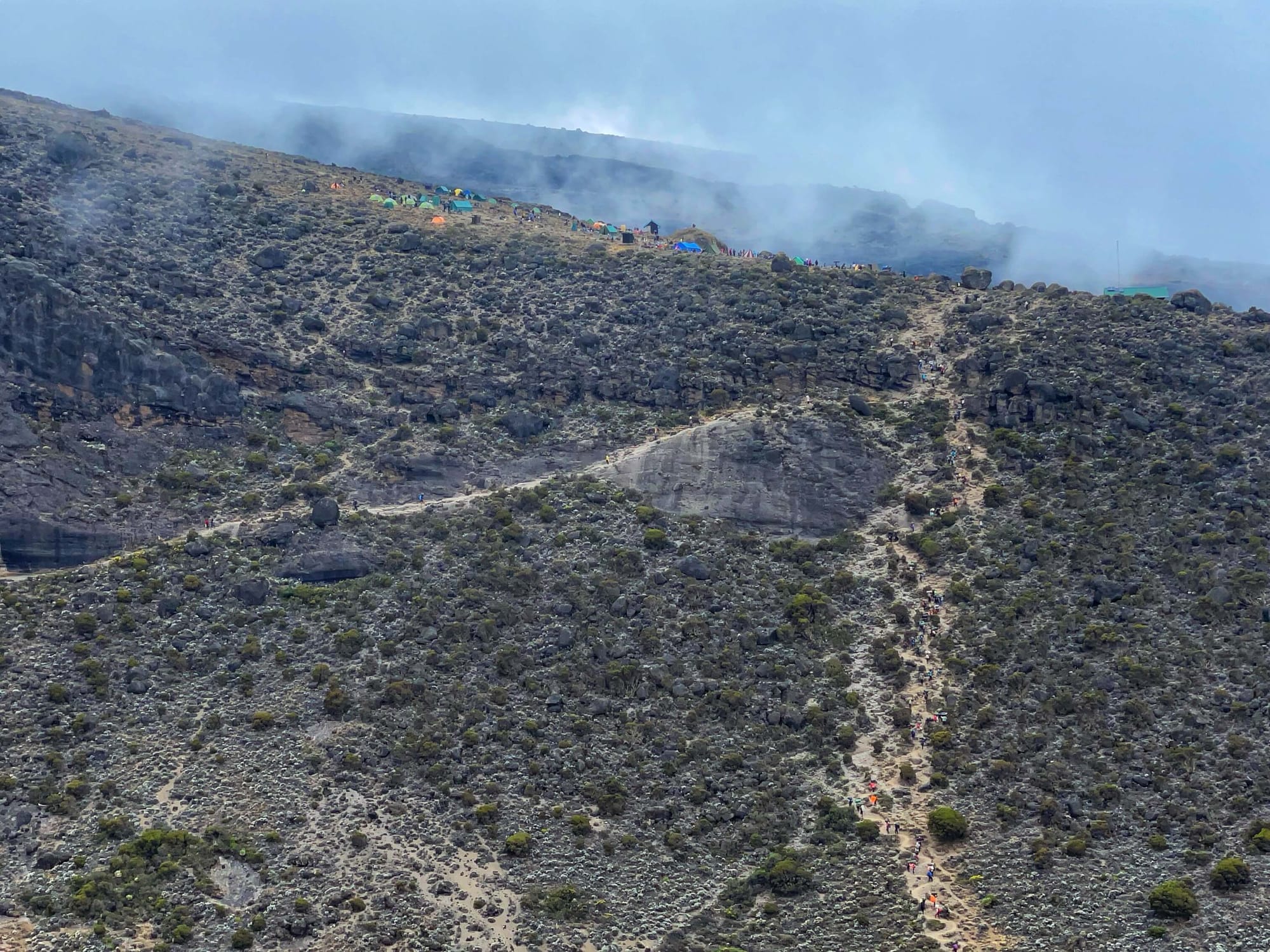
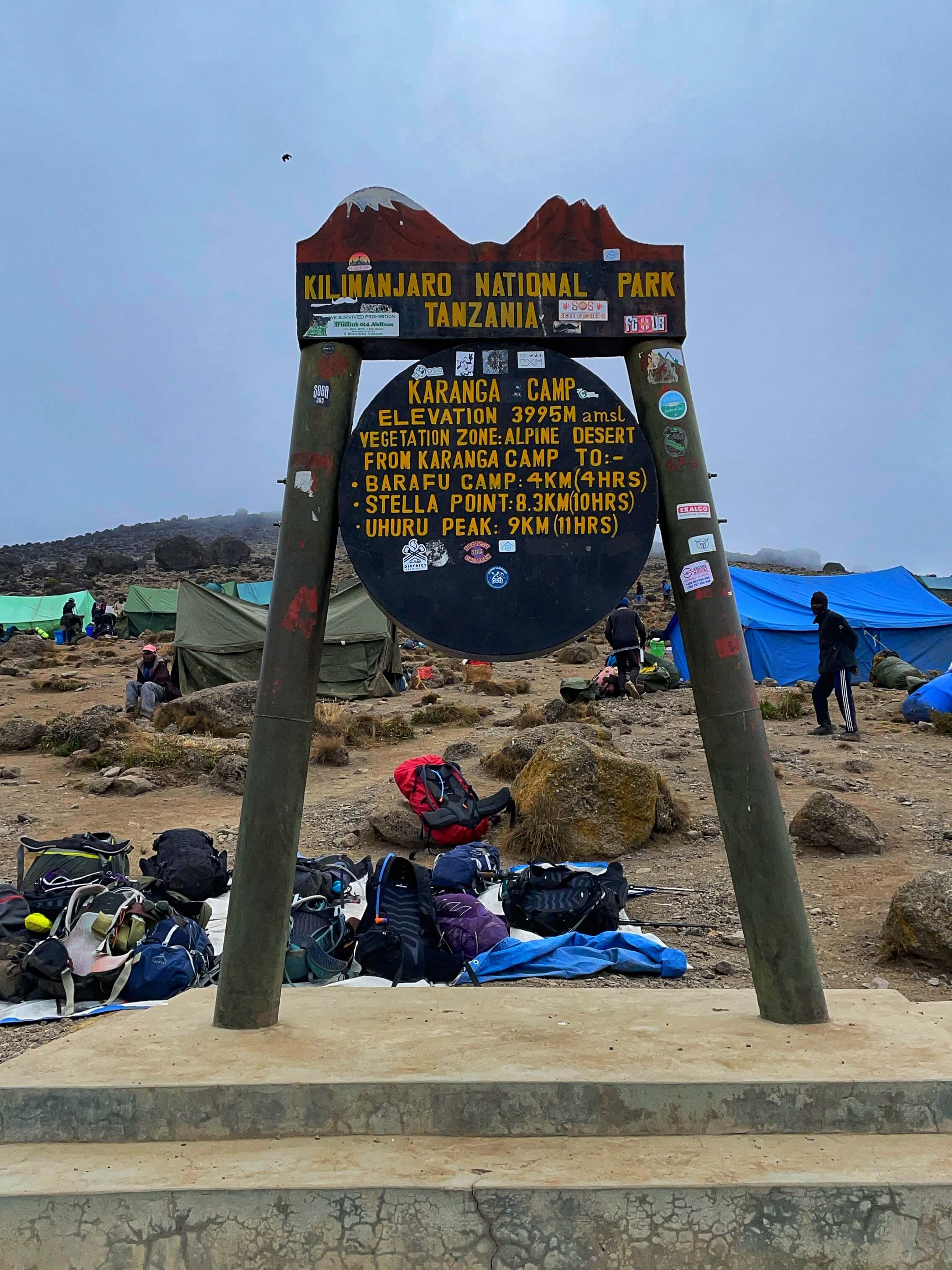
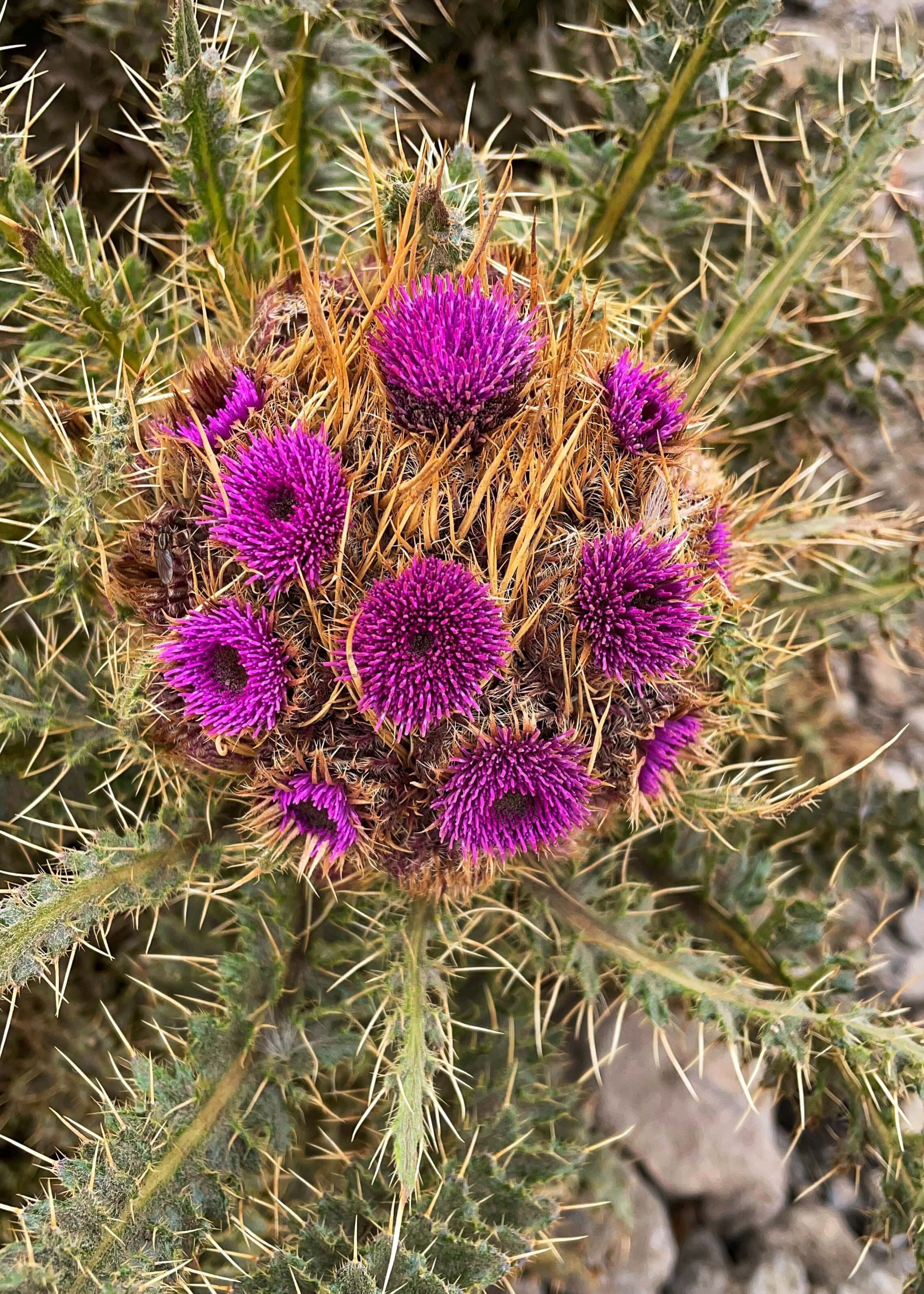
Arriving at Karanga Camp. The porters usually try to race ahead to start building camp before the hikers arrive; tents can be seen set up in the top two images as we hiked the brutal down-up path to get there. (Click any image to view larger.)
In all my time in Africa, I never heard more American accents than I did on Kilimanjaro. That fact in itself is noteworthy, as I backpacked through Uganda, Kenya, Tanzania, Zambia, Zimbabwe, Botswana, Namibia and South Africa – plenty of places where Americans could be, but weren’t, not in sizable numbers. The only other destination that came close to Kilimanjaro in terms of American presence was Victoria Falls. So, possibly the two most touristy places – and also two world wonders that no doubt are some of the only sights in Africa that Americans have ever heard of (beyond The Lion King's "Serengeti," that is). We are not exactly the most worldly of cultures, though our culture seems to permeate the world.
I didn’t like running into other Americans when I traveled. It wasn’t the accents that bothered me so much as the Americanisms that came with them. I had only been away for three months, and the contrast between American culture and everywhere else was jarring. Americans have a way of being very loudly American when they travel – and not very self-aware that they’re doing so.
“What’s the problem with being American?” I’ll tell you: we suck up all the air. Americans create so much conversational noise, travel becomes about everything that is “not how we do it in America” and “don’t you miss this very American thing” rather than being open to what a new culture and experience has to offer, just as it is. Everything that happens gets filtered and broadcast through the judgmental American lens. And while Americans don’t even realize that they’re being American, everyone else does, and it gives us a bad reputation, one that I try shamefully to shirk, and usually do. Most Africans guessed that I was from the Netherlands, Germany, or even Ireland (😂 - I might look it, but come on, the accent isn't even close) because I wasn’t acting very “American.” I took it as the compliment it was intended to be.
I’m well aware of the irony of writing this. “Aren’t you being judgmental of Americans for being judgmental?”
And to that I say: “Yes, yes I am.” Of course, I recognize that not every American is like this, and it’s very possible that you*, like me, are not. Or maybe you are and you weren’t aware of it but now you are. I share this perspective from a place of concern and compassion, holding the duality of both truths. The world deserves better from Americans, and also, how could we be any different? The world we grow up in is mostly limited to the borders of our country, which dictates the global entertainment landscape, and inoculates us with the American experience of life itself.
(*I apologize to all of my non-American readers, of which there are many! Me writing this to the assumed American reader is... part of the problem, I know.)
The point of all of this is to say, the idea that being curious and open minded, listening more than I speak, makes me “not stereotypically American” says a lot about how the challenges we are facing in our internal political landscape become core to our personalities and then echo out to the rest of the world. It is a great detriment to humanity to have a dominant culture – which exercises its great power to shape the world – be so closed to, well, the world.
Despite what I’ve written thus far, I loved hiking Kilimanjaro. I was stunned by the way that the landscape transformed each day as we climbed higher in elevation. I learned a lot about what it is like for porters and guides to do this hike dozens of times each year, to usher people on the journey to a pinnacle achievement that they will treasure for the rest of their lives. And, because the two guys I was hiking with hailed from Switzerland, my awareness opened to the hiking possibilities there, and I wound up visiting less than one year later, when I found myself in France, and realized that it was an easy train ride across the border. I can’t say I would have gone had I not met them, and then made another Swiss friend in Australia.
And that, for me, is the best part of travel. It opens up my world, and lets me see possibilities I couldn’t see before.
I share these words on Independence Day because while there is much to be celebrated about independence – particularly in the context of a year when we're navigating a president who seems to want to take it away – we’ve let our independence become loud, like fireworks, demanding to be seen and heard.
In the spectacle, we’ve lost sight of the fact that we are part of the sky – and the stars will keep shining long after our fire has died.
